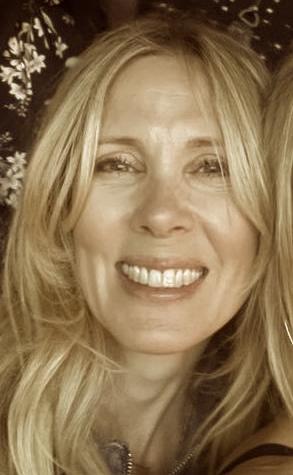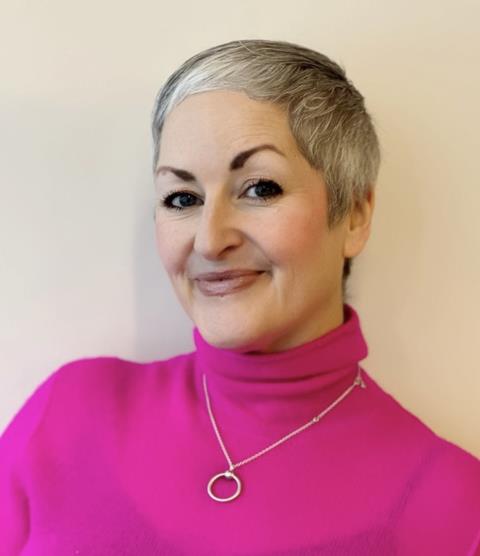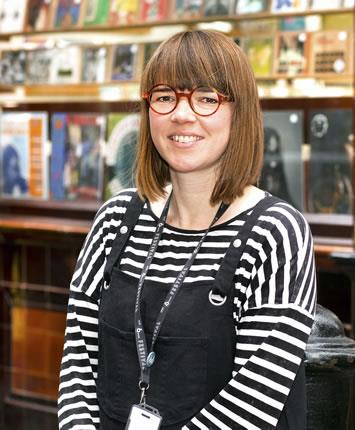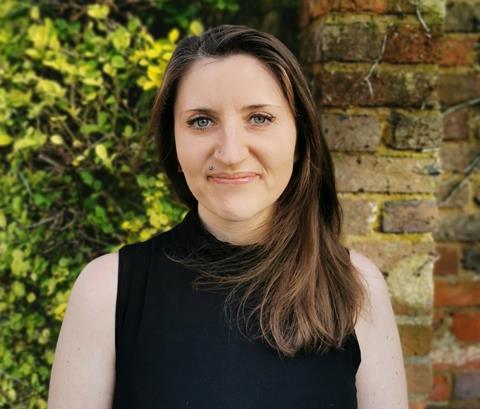Katherine Jamieson, colourist, Halo Post Production
How do you approach collaboration and teamwork in a male-dominated industry?
Overall, I’ve been lucky to work with brilliant and collaborative clients both male and female. The approach is always to be sympathetic to the story, some clients are technical and have specific ideas about the colour grade, while others work on a more emotional level, describing how they want to feel during particular parts of the film.
The latter I find more interesting as it’s more open to interpretation and often more creatively rewarding. I have in the past had some primarily older male clients who like to blindside you with lots of technical jargon straight off the bat, but ultimately once they feel confident that you know what you are doing and see the work, they drop their guard and the collaboration begins.
Essentially, I want everyone to feel safe in the grade space and that their ideas will be heard and implemented where possible – that’s when you get the best out of people and the project.
Have you faced any specific challenges as a woman working in post-production?
I’ve definitley experienced moments of sexism, verbal sexual harassment and bullying over my 20 years in post-production. I don’t notice it so much these days, when I started out in the industry I was young and as the years go on I’m not sure if I’ve hardened to it and learnt to ignore it or there is genuinely less of it.
I’m lucky it was nothing too serious, and as I become more confident in my craft and as a person, I manage to filter it out more. Despite the above, one of the hardest challenges I found was coming back to work after having kids. I have two children and trying to negotiate and designate my time and effort around them whilst building my career has definitely been challenging.
It was almost expected that I wouldn’t come back to work and I remember during my first pregnancy many other (male) colourists saying I wouldn’t want to come back, their wives didn’t work after their kids etc and I was regularly told I can’t have it all, I can’t do both, have a successful career as a colourist and be a mother.
I was determined to prove them all wrong and though it has been hard at times it’s definitely achievable.
How have you seen the landscape of post-production change throughout your career?
I’ve worked in post-production for nearly 20 years and its definitely changed. When I first started out I only really knew of one other female colourist and it’s great to see that there are so many fantastic female colourists over here in the UK at the moment.
Though it is improved, I think there is still some way to go. Post-production and particularly creative roles such as colourists, online editors and dubbing mixers are still predominantly male and still predominantly white. I’m yet to meet a male creative who has had to make concessions on their career since starting a family and would be genuinely interested to hear how other people have navigated parenthood in post.
What unique perspectives or strengths do you believe women bring to working in post-production?
I don’t want to be reductive and it generally comes down to personality traits more than anything but It’s widely known that women have better colour perception than men and in my experience there is often less ego in the room to negotiate with women.
Meryl Streep explains it brilliantly, and I’m paraphrasing, that women speak the language of ‘men’ that we have had to for centuries and grew up in the house of ‘men’ that we learn to speak it and dream it whereas men don’t speak ‘women’ they don’t dream in it.
I think this is so true and subsequently women have this amazing insight and empathy into people and that’s a very powerful tool that allows for more emotional storytelling.
How do you navigate the balance between work and personal life?
That’s the million dollar question. I’m not sure I’ve ever got the balance quite right but I make a point of scheduling my time so that half of my working week (I currently work four days a week) I leave on time (or some would deem early in our industry) to put the kids to bed.
Then I make up any time lost on the other two days. This way the work is still done and I feel like I’ve got some precious time with my kids to ease the mum guilt. This was something I had to fight for but I’m glad I pushed for it, and it can be done, I am proof of that and would hope it has set a precedent for those hoping to do something similar in the future.
What can the industry do to further support and promote gender equality and inclusivity?
It’s about representation from the ground up, more gender equality in tech roles in post that move up and are supported through training into creative roles. And those of us that have made it through need to support and push for new talent coming through. I also believe flexible working like Anna Whitehouse is campaigning for with the ‘flex appeal’ project gaves some flexibility in the workplace to allow for non-standard working hours.
More often than not women bear the brunt of when it comes to sacrificing their careers. The idea that it’s achievable and practical to work in this industry whilst maintaining a family/social life is only going to help attract a more diverse demographic.
What advice would you give to women aspiring to pursue a career in grading?
If it’s your passion to be a colourist then go for it. Try to get in at a post house if possible so you can spend time with existing colourists, soak up all you can from them whilst constantly doing it in your spare time. There is great free software out there for you to start on, film your own stuff and work on it, try out looks, find looks you like in other mediums and try to replicate them, dissect them and try to see why you like it, how it makes you feel. Training your eye doing this is a great way to hone your craft.






